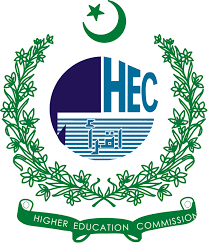Modern Trends in Western Criticism
مغربی تنقید کے جدید رجحانات
Abstract
Westren New Criticism was a formalist movement in literary theory. New criticism developed as a reaction to the older philological and literary history that dominated literary criticism in the middle decades of the 20th century, which focused on the history and meaning of individual words and their relation to foreign and ancient languages, comparative sources, and the biographical circumstances of the others. The new critics felt that this approach tended to distract from the text and meaning of a poem and entirely neglect its aesthetic qualities in favor of teaching about external factors. New criticism believed the structure and meaning of the text were intimately connected and should not be analyzed separately. In order to bring the focus of literary studies back to analysis of the texts. The new critics also looked for paradox, paradox, ambiguity, irony, and tension to help establish the single best and most unified interpretation of the text.
Reference:
- Sajjad Baqir Rizvi, Dr, Critical Principles of the West, Islamabad: Moqtadra Qaumi Language, 2002, p: 7
- Atiqullah, Professor, The Tradition of Criticism in the Maghreb, Lahore: Haqq Publications, 2018, p: 402
- Ibid
- Asghar Ali Baloch, Dr, Essay, A Brief Review of Some Important Critical Schools, Content: Criticism Past, Present and Future, Author: Dr. Mushtaq Adil, Sahiwal: Farogh Zaban Publishers, p: 84
- Atiqullah, Professor, The Tradition of Criticism in the West, pp. 243-244
- Ibid
- Jameel Jalbi, Ph.D., Eliot's Essays, Contents, From Aristotle to Eliot, Islamabad: National Book Foundation, 2015, P.: 178
- Salim Akhtar, Dr, Creative Personalities and Criticism, Lahore: Milestone Publications, 1989, p: 513
- . Zirmunskij, Voprosy Teorie, Literary {Leningrad}1928, pp.8-9
- Hamid Kashmiri, Dr, Tafheem wa Naqeed, Critical Essays, Lahore: Famous Book Depot, S.N, p:621
- North Roop Fry, Objections to New Criticism, Lahore: Modern Publications House, 2020, p: 34
- Roland Barthes, Objections to New Criticism, Preston University Press, p.71
Copyright (c) 2024 Dr Fazeelat Bano, Muhammad Tahir Ali

This work is licensed under a Creative Commons Attribution 4.0 International License.
Noor e Tahqeeq, LGU is fully open access and licensed under Creative Commons Attribution 4.0 International License.
CC BY: This license allows reusers to distribute, remix, adapt, and build upon the material in any medium or format, so long as attribution is given to the creator. The license allows for commercial use.
CC BY includes the following elements: BY – Credit must be given to the creator
Noor eTahqeeq allows the authors to retain copyright under the CC-BY license. However, authors have to sign a form agreeing to the publication of their article under the CC-BY license.







